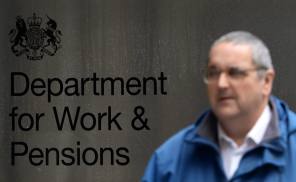

The changes, due to be outlined in a consultation today (July 15) also include measures to help employers effectively support workers to get back to work as well as possible incentives for small businesses that allow flexibility for workers on leave.
To qualify for statutory sick pay, a worker currently has to earn at least £118 per week and be ill for four days in a row.
But the government’s proposals would see the income limit lowered, granting the statutory pay to more part-time and low paid workers.
According to the Department for Work and Pensions, the longer somebody is on sickness absence the more likely they are to fall out of work altogether.
Some 44 per cent of those who had been off sick for a year end up leaving employment altogether while more than 100,000 people end up leaving their job each year following a period of sickness absence lasting four weeks or more, it stated.
The government’s proposals would see employers able to take action to intervene and encourage workers early on during a period of absence to return to work.
Noting that smaller businesses would need most support in this, as the majority of small employers reported a lack of time and capital to invest in staff off work, the government will also consult on a ‘sick pay rebate’ for those that effectively manage their staff while off work.
The government stressed that employers were "best placed" to take action to help their workers stay in work.
Evidence showed early intervention by an employer was effective in reducing the number of people leaving the workforce for health reasons, according to the government, and simple measures such as flexible adjustments to a working pattern or keeping in touch could improve the likelihood of return.
Mr Hancock said: "Too many still face challenges returning to work after sick leave.
"We need to remove the barriers that stop people with disabilities or health conditions from reaching their full potential - these steps will help us achieve that."
He added that businesses would benefit from being able to retain talent and build workplaces that support the physical and mental health needs of their employees.
Prerana Issar, chief people officer at NHS England, said: "Helping people manage their health while at work through common sense measures like sickness absence management and occupational health services, is good for employees, better for employers and ultimately supports both the NHS and the economy."
Advisers within the group protection sector also welcomed the government’s proposals to improve get back to work schemes and sick pay, noting that group income protection was a fundamental way many employers dealt with these circumstances.
Tom Conner, director at Drewberry, said: "I think it's very sensible for the government to be looking at phased returns to work and early intervention within the statutory sick pay framework.
"Group income protection providers are building a very solid track record of helping people back to work and early intervention and phased returns to work are core to that."
Paul Avis, marketing director at Canada Life, said the group risk insurance industry welcomed the government looking at protecting more people from prolonged absences but stressed it needed to "facilitate change" where great customer outcomes had been seen from the group income protection industry.
He said: "We are the experts and we can factually prove the benefits and our processes for retaining people with disabilities and health problems in the workplace are evidenced."
Mr Avis thought the UK needed "change through actions rather than recommendations" from the government and hoped that UK organisations felt some real benefit, rather than additional costs, from the work that will go into this consultation.
He also pointed out that the statutory sick pay only constitutes £94.25 per week and is "simply a subsistence benefit" rather than protecting an individuals quality of life.
He said that group income protection can bolster an employee's financial stability in times of extending absence from work and often included the same sort of 'get back to work schemes' proposed by the government today.
The government's consultation on the proposed sick pay changes starts today (July 15).
imogen.tew@ft.com
What do you think about the issues raised by this story? Email us on fa.letters@ft.com to let us know.



